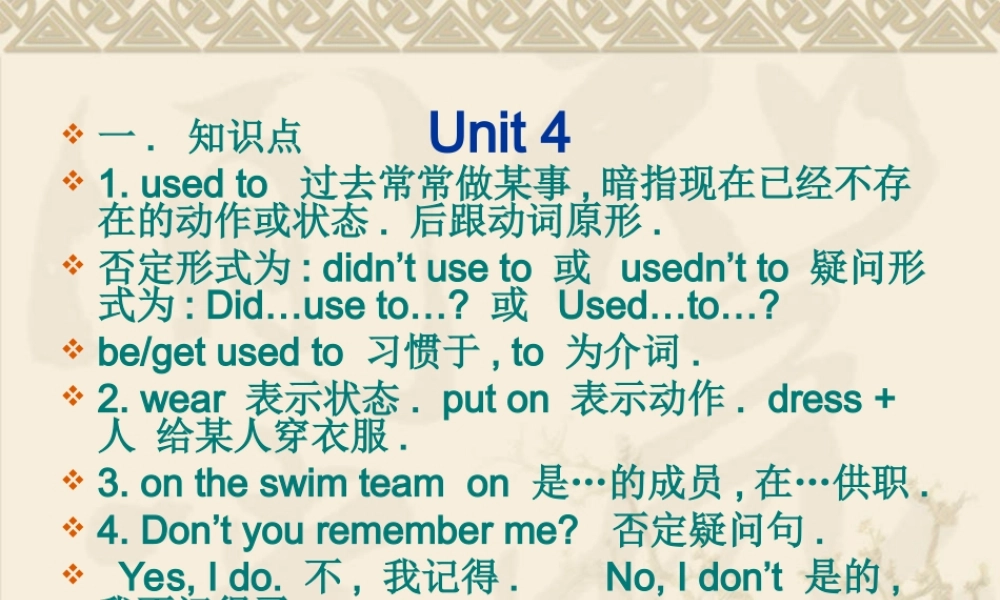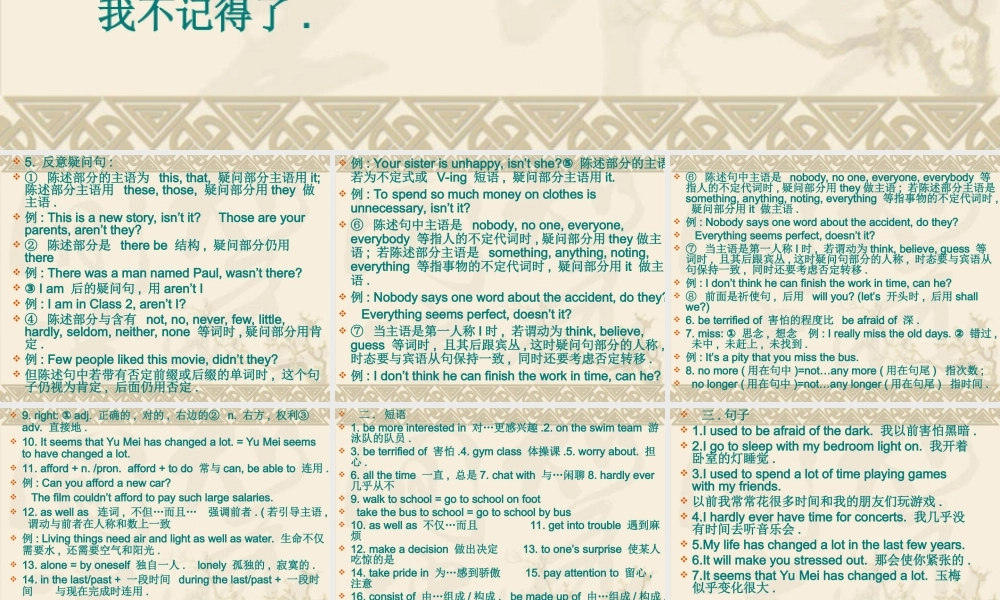Unit 4 一 . 知识点 1. used to 过去常常做某事 , 暗指现在已经不存在的动作或状态 . 后跟动词原形 . 否定形式为 : didn’t use to 或 usedn’t to 疑问形式为 : Did…use to…? 或 Used…to…? be/get used to 习惯于 , to 为介词 . 2. wear 表示状态 . put on 表示动作 . dress + 人 给某人穿衣服 . 3. on the swim team on 是…的成员 , 在…供职 . 4. Don’t you remember me? 否定疑问句 . Yes, I do. 不 , 我记得 . No, I don’t 是的 , 我不记得了 . 5. 反意疑问句 : ① 陈述部分的主语为 this, that, 疑问部分主语用 it; 陈述部分主语用 these, those, 疑问部分用 they 做主语 . 例 : This is a new story, isn’t it? Those are your parents, aren’t they? ② 陈述部分是 there be 结构 , 疑问部分仍用 there 例 : There was a man named Paul, wasn’t there? ③ I am 后的疑问句 , 用 aren’t I 例 : I am in Class 2, aren’t I? ④ 陈述部分与含有 not, no, never, few, little, hardly, seldom, neither, none 等词时 , 疑问部分用肯定 . 例 : Few people liked this movie, didn’t they? 但陈述句中若带有否定前缀或后缀的单词时 , 这个句子仍视为肯定 , 后面仍用否定 . 例 : Your sister is unhappy, isn’t she? ⑤ 陈述部分的主语若为不定式或 V-ing 短语 , 疑问部分主语用 it. 例 : To spend so much money on clothes is unnecessary, isn’t it? ⑥ 陈述句中主语是 nobody, no one, everyone, everybody 等指人的不定代词时 , 疑问部分用 they 做主语 ; 若陈述部分主语是 something, anything, noting, everything 等指事物的不定代词时 , 疑问部分用 it 做主语 . 例 : Nobody says one word about the accident, do they? Everything seems perfect, doesn’t it? ⑦ 当主语是第一人称 I 时 , 若谓动为 think, believe, guess 等词时 , 且其后跟宾丛 , 这时疑问句部分的人称 , 时态要与宾语从句保持一致 , 同时还要考虑否定转移 . 例 : I don’t think he can finish the...


